The Ultimate Data Science Career Guide
Today’s economy is inclining more toward insights—companies have been gathering information for a long time. As indicated by LinkedIn, there is an enormous interest in individuals who can mine and decipher the data. These are called data scientists.
Are you thinking of a career in data science?
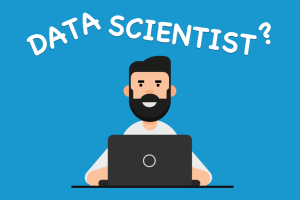
If you are considering a career in data science, you are choosing a field that is rapidly growing and constantly evolving. Data scientists play a crucial role in many industries, from healthcare to finance to technology, by analyzing complex data sets to uncover insights that drive decision-making. To succeed in this field, you will need strong technical skills in programming languages such as Python and R, as well as expertise in statistics and machine learning. Additionally, effective communication and problem-solving skills are essential for effectively conveying insights and making informed decisions. A career in data science can be challenging but rewarding, providing opportunities for professional growth and making a significant impact on businesses and society as a whole.
Who is a Data Scientist?
A data scientist offers an unparalleled mix of abilities, a lot as per the general satisfaction of their manager. Data scientists not only understand the language of information, but they can also break down it and draw noteworthy insights from it.

Data scientists are a blend of mathematicians, pattern spotters, and PC researchers. The data scientist’s job is to decode enormous volumes of information and complete further analysis to discover trends in the information and gain a deeper insight into what it all means. Data scientists work between the business and IT universes and drive industries by analyzing complex datasets to coax out insights that organizations can use in activities. In addition, they’ve mastered the art of information storytelling to a level that makes both administration and partners gesture in agreement and plan their procedure as needs be.
They are also proficient in data cleaning and preparation, as well as in communicating their findings to non-technical stakeholders. A successful data scientist is a curious problem solver who is able to ask the right questions, find creative solutions, and continuously learn and adapt in a constantly evolving field.
Skills Required For Data Scientist
If you’ve been considering how to start a career in data science, you’ll need hard skills like machine learning, statistics, analysis, AI, measurements, Hadoop, and so on. In any case, you’ll likewise excel in this sort of job if you excel at problem solver, critical thinking, and persuasive communication, and are a great listener.
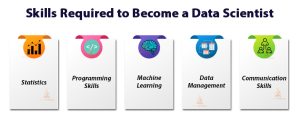
This is an industry where you find plenty of opportunities, so once you have the education and qualifications, the jobs are waiting for you now and in the future.
Data Science Roles
To name some examples, the absolute most basic occupation titles for information researchers include:
1. Business Intelligence Analyst
A BI analyst utilizes information to help make sense of market and business trends by breaking down information to build up a more clear image of where the organization stands.
2. Data Mining Engineer
The data mining engineer inspects the information for their own business as well as that of third parties. Notwithstanding breaking down information, a data mining specialist will make advanced calculations to help analyze the information further.
3. Data Architect
Data engineers work closely with customers, developers, and framework designers to make outlines that information management systems use to centralize, maintain, integrate, and ensure information source protection.
4. Data Scientist
Data scientists start by making an interpretation of a business case into an insights agenda, creating theories, and understanding information just as exploring patterns to explain what impact they will have on organizations. They additionally discover and choose algorithms to help further analyze information. They use business insights not only to give an explanation of what impact the information will have on an organization later on but can likewise help devise solutions that will assist the organization with moving forward.
Senior Data Scientist
A senior data scientist can think out what a business’s future needs will be. Aside from gathering information, they likewise break down it thoroughly to determine profoundly complex business issues proficiently. Through their experience, they can not only illustrate but drive forward the formation of new guidelines, just as make approaches to utilize statistical information and furthermore create apparatuses to help further break down the information.
Why is data science important?
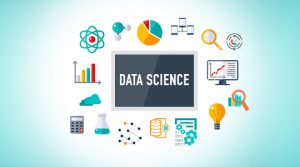
Data science isn’t simply limited to the F1 circuit or the huge gambling club business players. Indeed, there is for all intents and purposes no industry that can’t profit from it. Retail and online businesses, healthcare, finance, insurance, real estate, logistics, transportation, and healthcare – all need a solid data science team that can use the information inside their association to gain a competitive advantage. That is the reason, if you’re looking for a rewarding career with a strong impact on any business decision-making process, you should definitely explore the data science career path.
Who can use data science?
You can. Also, your employer absolutely can, as well.
Actually, the last will greet you wholeheartedly, when they understand you’re qualified and brave enough to tame the tide of unstructured, semi-organized, and organized information, and use information insights to drive change. Obviously, it’s implied that those progressions should prompt quantifiable outcomes. All things considered, each organization needs to guarantee the prosperity of its business, right?
What does a data scientist do?
Actually does everything. Data scientists have a solid interest and enthusiasm for accomplishing useful business impact. Moreover, they gloat about outstanding judgment joined with an analytical mindset.
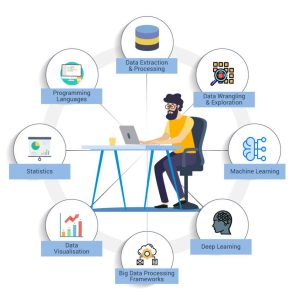
Be that as it may, what separates the best from the rest is a talent for imaginative critical thinking and the ability to learn new innovations and technologies.
Why is that so important?
Since data scientists must utilize ML (machine learning) models to solve testing issues in all business territories. Also, they are genuine champions in using statistical natural language processing to mine unstructured information and extract insights. Which doesn’t mean they don’t likewise manage organized information. Actually, it’s a remarkable opposite. Data scientists’ model structured information with cutting edge statistical methods and calculations to perform analysis. At that point, they decipher the outcomes and visualize the information to recount the most compelling stories to the administration and partners to accomplish the organization’s business objectives.
Data scientist salary – What amount do information researchers make?
Here are the numbers, as indicated by Glassdoor and Payscale. As a data scientist in the U.S., indeed, even with no experience, you can get a $10,000 yearly reward of your $100,000 normal yearly compensation. Also, just in a couple of years’ time, your earnings can increment to $118,000, plus $12,000 in bonuses! (Pay for data scientists changes by state and area.)
In the UK, with no past experience as a data scientist, you can hope to gain a normal absolute pay of £33,813. When you have 1-4 years despite your good faith, your normal absolute pay will ascend to £39,573. Generally speaking, the data scientist career outlook is undeniably positive.
How to become a data scientist?
Everyone needs to realize that how will generally be a data scientist. All things considered, perhaps not actually everyone, except this is verifiably the most sought-after career in the data science field at the moment, as the demand for data scientists is continually developing. Data scientists are independent and significant, and If you need to get recruited as one, you’re presumably wondering about what the data scientist’s duties are, the means by which to gain the important skills to apply for data scientist positions, and if the salary will live up to your desires.
We trust it will give you the bits of knowledge you have to choose if the data scientist job accommodates your profession needs and earnings.
What education do you need to become a data scientist?
First off, you needn’t bother with a Master’s or a Ph.D. degree to turn into a data scientist. If you already have it – amazing! It’s absolutely a plus! Be that as it may, a Bachelor’s certificate is adequate to get you on the data scientist way.
As indicated by extensive research data on the most proficient method to be an data scientist, a background in the accompanying disciplines expands your chances of getting an data scientist work:
- Natural science, including physics, chemistry, and biology;
- Statistics and mathematics;
- Computer science;
- Engineering;
Data science and analysis, which includes machine learning.
Fortunately, even students from completely various zones of studies, hold an awesome possibility of turning out to be Data science. According to data from successful data scientists’ LinkedIn profiles, 43% have finished in any event one data science online course with 3 certificates being normal. In this way, in the event that you’ve never composed a line of code in your life, you can still make up for it with determination and commitment to learning.. And at last start a career in data science.
What data scientist qualifications you should acquire?
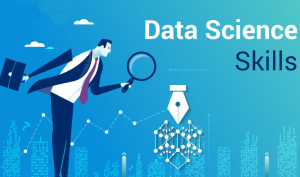
Data scientists are famous for their robust skillset and competences. So, here are the must-have qualifications you need to become a data scientist.
Technical skills
- Excellent programming skills in R or Python and its data science libraries (Pandas, scikit-learn);
- Experience with relational databases and SQL;
- Experience in MATLAB;
- Advanced practical knowledge of data science and machine learning /AI development frameworks;
- Excellent analytical and learning skills;
- Experience in Deep Learning frameworks (e.g. TensorFlow);
- Experience with natural language processing (NLP) algorithms and techniques is an advantage.
Practical skills
- Ability to start initiatives;
- Integrity and confidentiality;
- Desire to drive innovation and generate unique solutions;
- Growth mindset;
- Ability to track and share external trends, best practices or ideas;
- Drive for performance;
- Accountability;
- Ability to thrive under pressure and fast pace;
- Ability to take an unpopular stance.
Soft skills
- Strong written and verbal communication skills
- Leadership skills;
- Ability to develop and leverage relationships with stakeholders to achieve a company’s business goals;
- Ability to inspire others and support others’ development to achieve full potential;
- Readiness to collaborate closely with engineering and Power BI teams.
What’s the demand for data science professionals?
As indicated by the report, by 2020 the quantity of data science and analytics job listings is evaluated to develop from almost 364,000 postings to about 2,720,000 openings. Actually, there is a serious concern that the data science skill gap will keep enlarging and the supply of data scientists and information analytics profession ability won’t have the option to get up to the industry’s demand. Consequently, presently is actually the best opportunity to become a data science expert.
What’s the future of data science jobs?
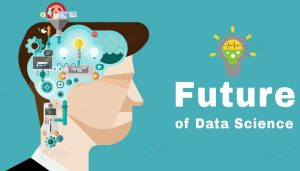
For sure, the future of data scientists and information engineers is brighter than at any time in recent memory. As indicated by the report, they are the jobs destined to experience the ill effects of flexible deficiencies, alongside BI analysts and other data science, system developer, and analytics positions. In addition, the information shows this inclination will continue to be strong for the years to come.
What’s the job growth in data science?
By and by, we can say that the only way is up with regard to data science and analytics employment. As the study appears, the skills anticipated to become the quickest incorporate progressed diagnostic skills, for example,
- Data science;
- Machine learning;
- Tableau;
- Big data;
- Data visualization;
Obviously, skills in data analysis, SQL, financial analysis, mathematics, data warehousing, science, information warehousing, database administration, business intelligence, SQL Server, business knowledge, and ETL firmly stay among the most demanded analytics skills.
Taking everything into account, the law of supply and demand demonstrates the data science job viewpoint is more than optimistic.
How to get a job in data science?
On the off chance that you’ve come this far down the article, it’s sheltered to state you’re serious about data science as a career. In this way, let’s briefly go through the job application steps that will get you where you want to be.
Where to look for a data science job?

Enormous job directories, for example, Glassdoor, Indeed, and LinkedIn are super well-known and are all the time the first choice for hopeful data scientists searching for a job. However, limiting your data science work prospects inside these stages is really counterproductive. Why? On one hand, you will confront huge competition for each and every single job posting, as pretty much every data science job searcher is well-acquainted with these platforms. Then again, an enormous number of tech organizations abstain from posting their job offers on these sites. After all, the more applications you get, the harder it gets the chance to isolate the quality goods from the refuse.
Here are 10 of the best data science job boards you should bookmark before you send out your resume to start a career in data science industry as a data scientist:
- KDnuggets Jobs
- Analytic Talent;
- Kaggle Jobs;
- DataJobs;
- analyticsjobs.co.uk;
- AnalyticsVidhya;
- GitHub Jobs;
- ai-jobs.net;
- BigData Jobs;
- BDjobs.com.
